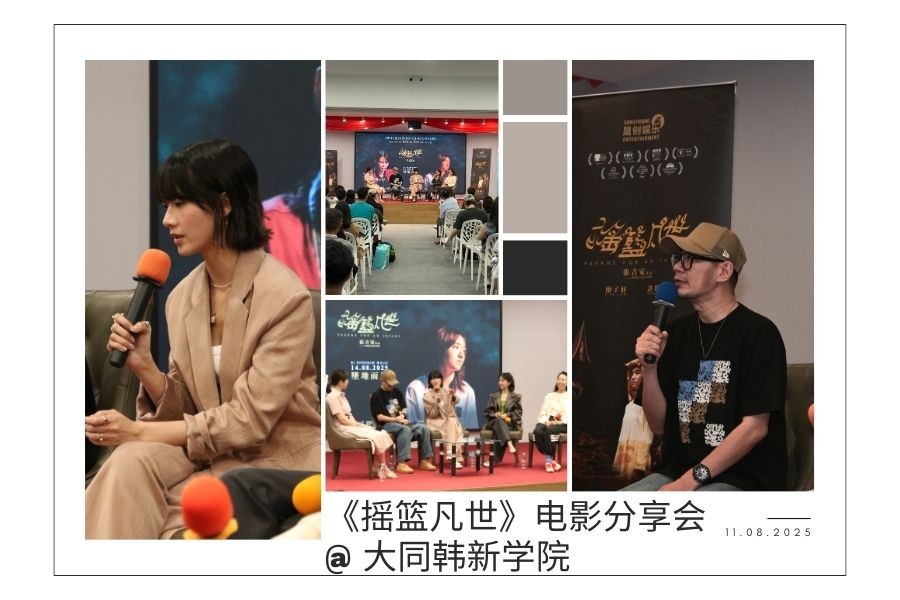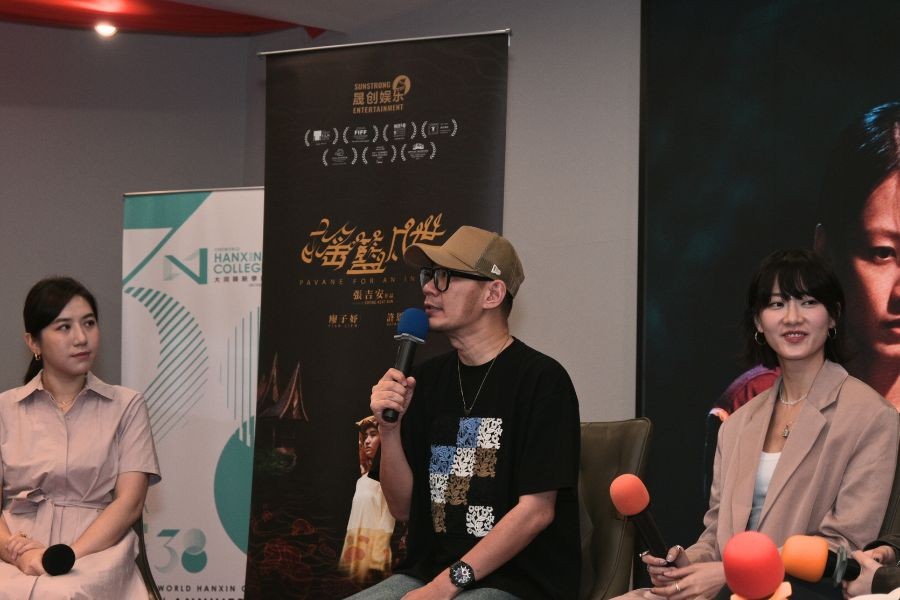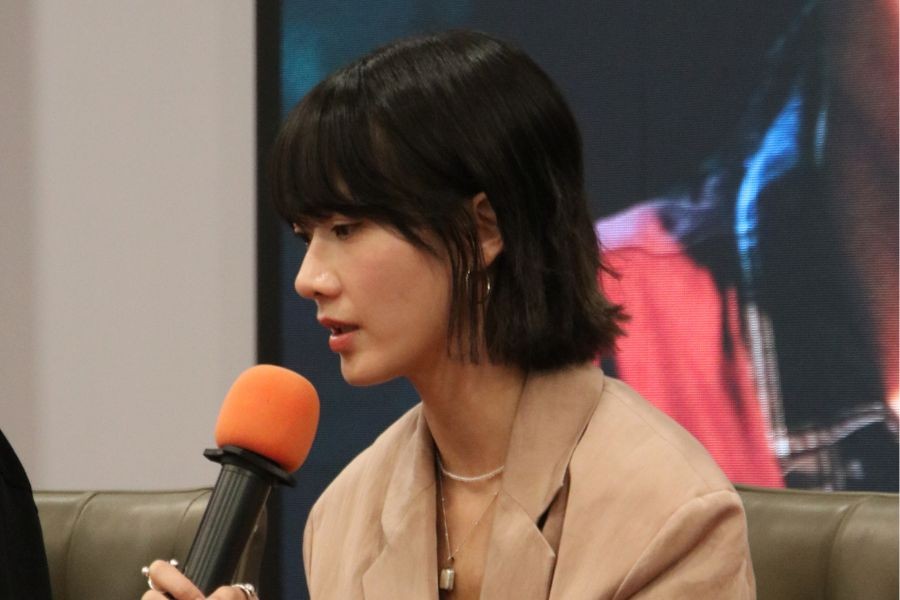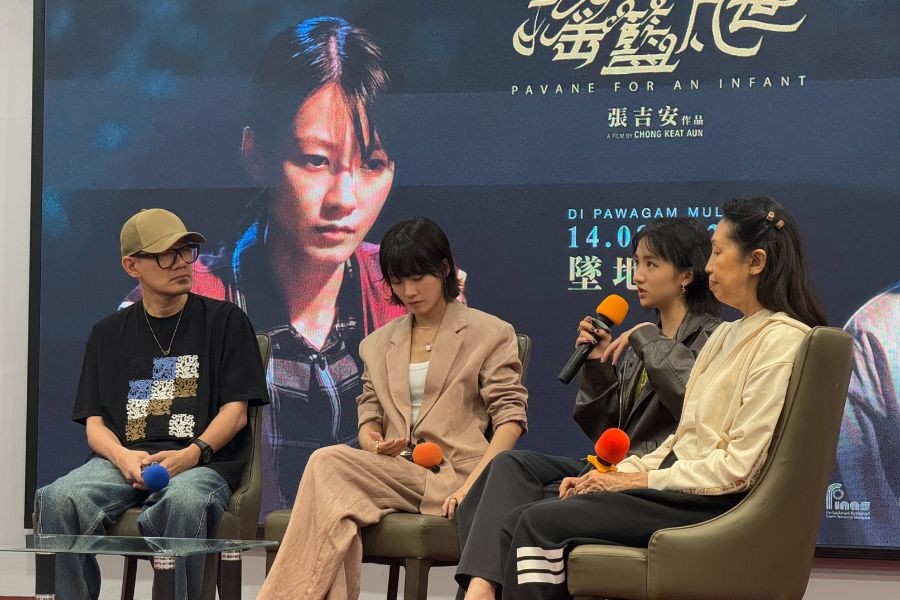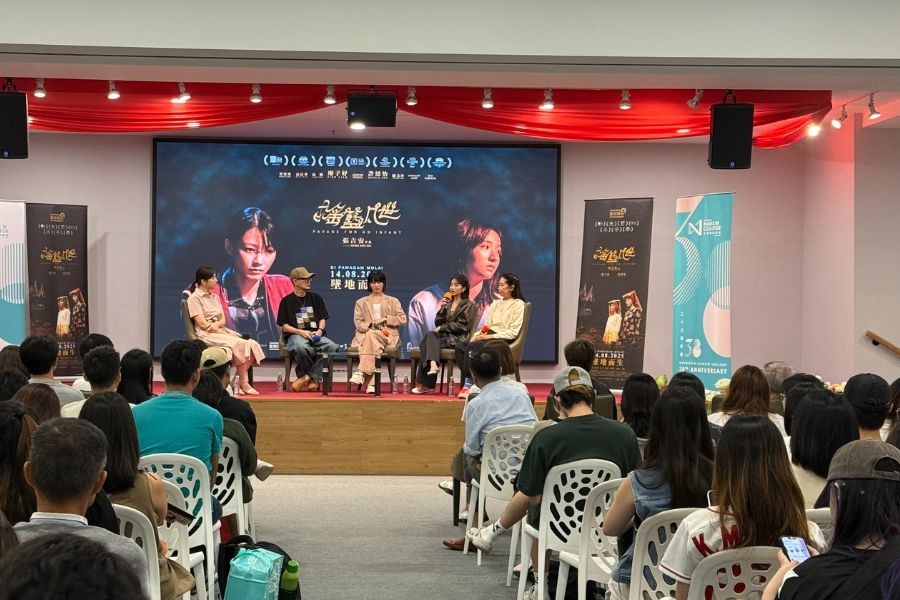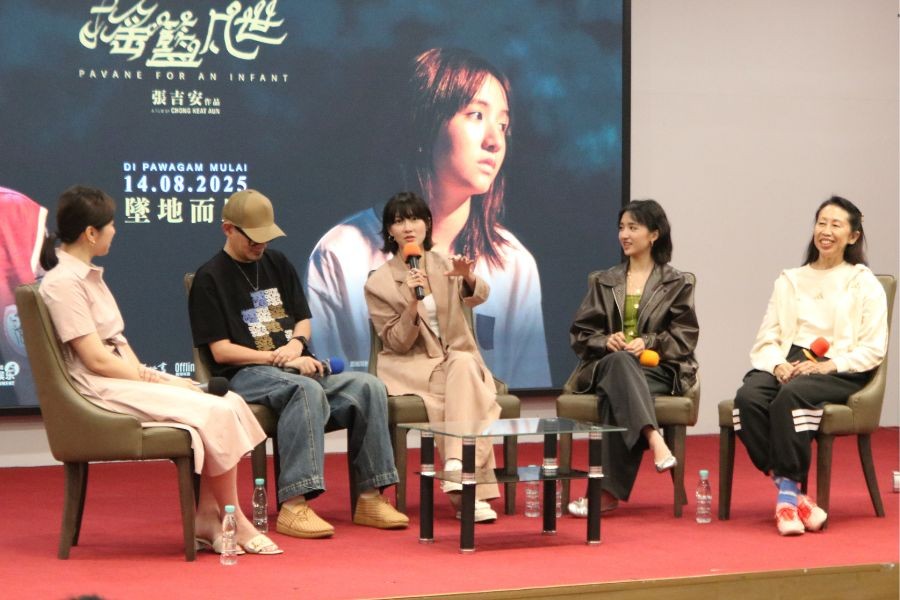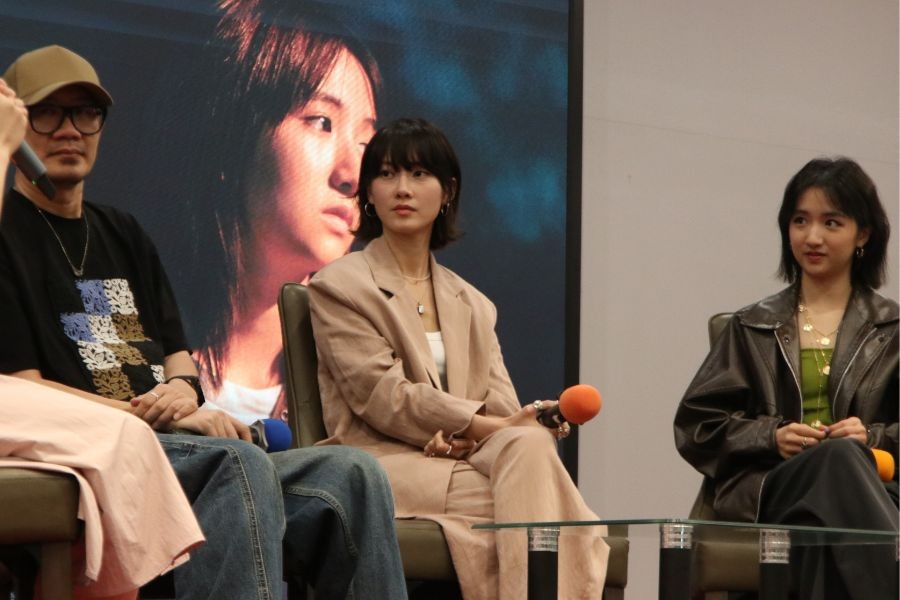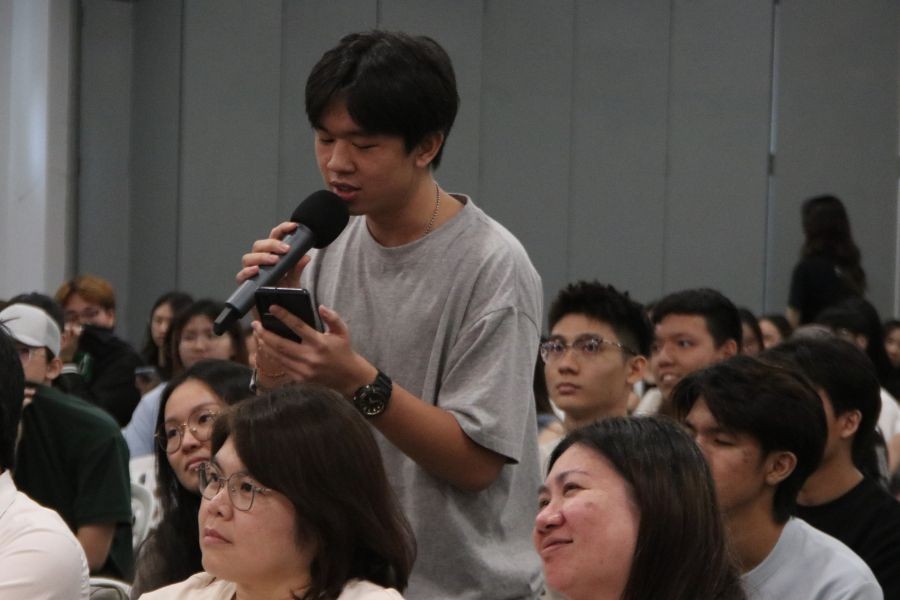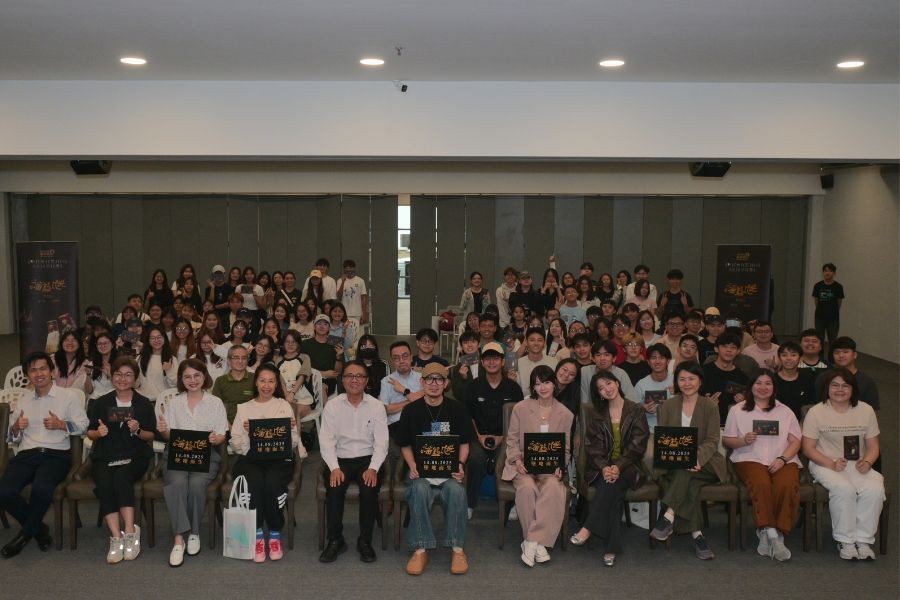Chong and actors discussed several topics at the "Pavane for an Infant" film sharing session
Director Chong Keat Aun of "Pavane for an Infant" and leading actors Fish Liew, Natalie Hsu, and Pearlly Chua recently held a sharing session at Oneworld Hanxin College. The director and actors not only discussed the film's origins and behind-the-scenes stories, but also delved into the long-shunned issues of baby abandonment, sexual violence, and gender equality in Malaysia. Hosted by local artist Pauline Tan, the sharing session attracted nearly a hundred students and members of the public.Chong explained that "Pavane for an Infant" was inspired by the 13 baby shelters in Malaysia. These facilities not only take in abandoned babies but also assist in finding adoptive families, providing a chance of survival for women who are unwilling to become pregnant and newborns . However, some conservative religious groups misinterpret baby shelters as places that encourage "illegal childbirth," overlooking their underlying protection and assistance functions. To stay grounded in reality, the crew spent a year and a half collecting case studies before filming, listening to the stories of women who have experienced sexual assault and domestic violence. The hope is to encourage society to recognize women's bodily autonomy and the plight of vulnerable groups.
Fish Liew, who has worked overseas for many years, returns to Malaysia to play a volunteer role in this film. She shared that after graduating from Oneworld Hanxin College, she worked as an editing assistant, model, and special actress before ultimately establishing herself in the Hong Kong entertainment industry. Regarding her participation in this film, she stated that we need more stories about women of diverse ages and facets, not just romantic relationships or motherhood. She hopes to use this work to help men and other groups understand the lives and forbearance of women.
Natalie Hsu, who plays the college student "Xiao Man," read extensively on sexual assault to immerse herself in the role and kept a diary to record her character's state of mind, allowing her to confront these difficult emotions. She lamented that women of different generations and regions face similar challenges, "which reminds me that there has been no significant progress on this issue."
At the sharing session, Director Chong elaborated on his creative philosophy: "I turn my back to the audience when creating, and then face them once the work is complete." He encouraged viewers to view films from three perspectives: first, for the story; second, for the performance; and third, for the technique and details—because good works can unlock new meanings as the viewer experiences life.
